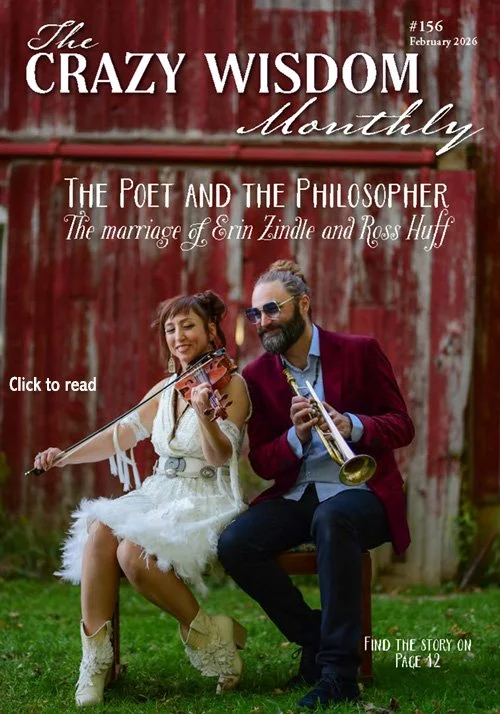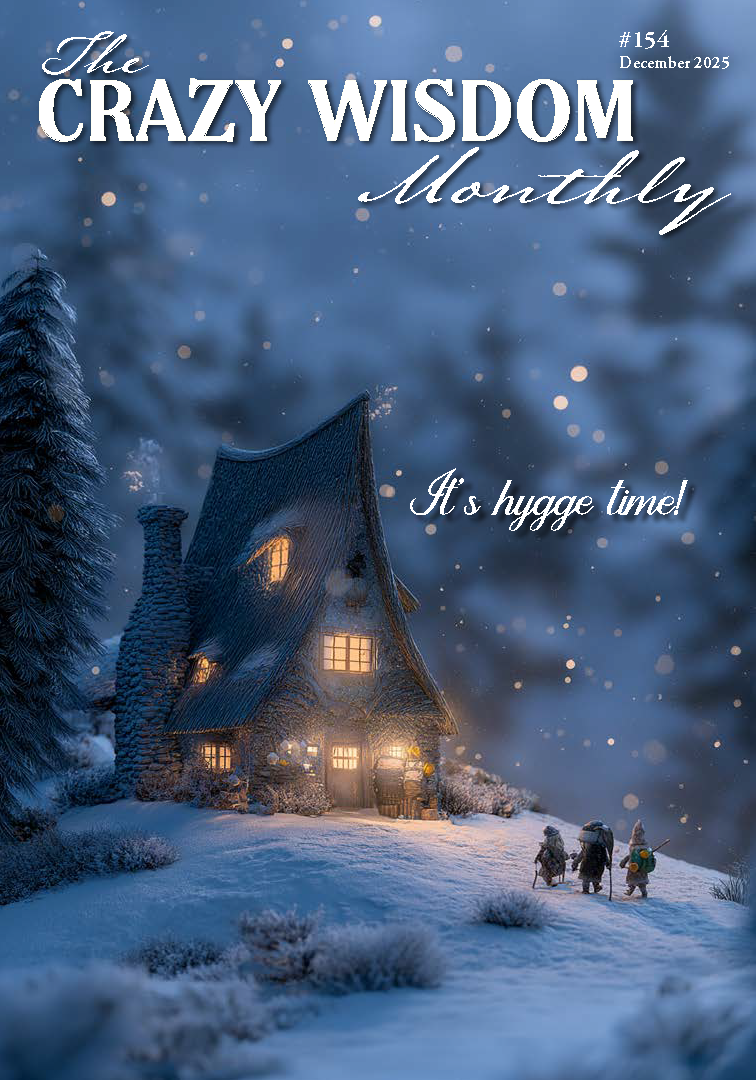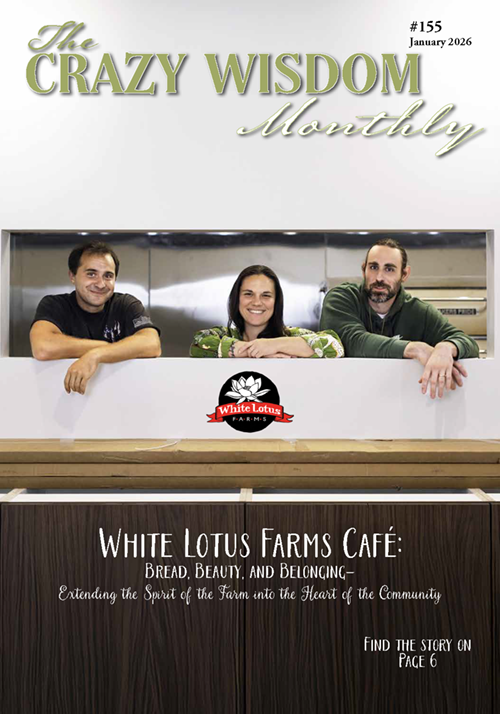In Nature’s Symphony, Martin Docherty presents a refreshing and deeply thoughtful perspective on our relationship with the natural world—one that blends science, philosophy, and spirituality in a way that feels both intellectually satisfying and emotionally grounding. This book is neither your typical science read nor a standard spiritual guide. It’s something more layered: a meditation on the sacredness of the universe, grounded not in supernatural beliefs, but in the elegant truths of science itself.
Book Review: Your Creator Matrix:How to Use Optimal Wellness and Quantum Healing to Master Your Story and Create Your Reality
Your Creator Matrix by author Cathleen Beerkens blends deep personal insight with cutting-edge science to offer a roadmap for taking control of your story and reprogramming your reality in the process.
Book Review: Custodians of Wonder
In Custodians of Wonder, author Eliot Stein embarks on a captivating journey across five continents, introducing readers to ten remarkable individuals dedicated to preserving endangered cultural traditions.
Book Review: Wild, Willing and Wise: An Interactive Guide for When to Paddle, When to Rest, and When to Jump Naked into the River of Life
HeatherAsh Amara’s Wild, Willing, and Wise: An Interactive Guide for When to Paddle, When to Rest, and When to Jump Naked into the River of Life is a profoundly introspective and empowering book that invites readers, particularly women, to embrace their wild nature, cultivate courage, and grow into wisdom. Known for her teachings in feminine empowerment, Amara has crafted a guidebook that seeks to awaken the primal, creative, and compassionate spirit within. This book blends self-help with spiritual exploration, challenging readers to step into their true power by balancing freedom, bravery, and deep knowing.
Book Review: How Are You, Really? By Jenna Kutcher
In How Are You, Really? Jenna Kutcher explores the often-overlooked question of how we are truly feeling. She encourages readers to reconnect with their authentic selves and live according to their values, joys, and rhythms rather than societal expectations. The book resonates deeply with people at various life stages, offering a much-needed invitation to stop and ask, “How are you, really?”
Book Review: Infectious Generosity: The Ultimate Idea Worth Spreading by Chris Anderson
Infectious Generosity by Chris Anderson is a non-fiction book that delves into the transformative power of generosity as a force for positive change. The book argues that acts of kindness and giving can spread rapidly through society, like a contagious disease, creating a ripple effect of goodwill.
Book Review: Slow Productivity: The Lost Art of Accomplishment without Burnout by Cal Newport
In Slow Productivity, bestselling author and computer science professor Cal Newport presents a counterintuitive approach to getting things done in our fast-paced world. The book challenges the conventional wisdom of constant hustle and multitasking in our rapid digital age.
Kids in the Community: Science for Kids
Imagine a world where your children are captivated by bubbling potions, erupting volcanoes, and soaring rockets. In this magical realm, adventure awaits. From makeshift kitchen laboratories and hands-on classes to information-packed books, parents can ignite the spark or fuel the burning passion for science with various engaging and immersive activities—some at home, some in person. Unlocking the magic of science begins with nurturing your child’s natural curiosity. Observe what they're interested in and use it to pave the way for exciting career paths in the future.
Book Review: obsessive intrusive magical thinking by Marianne Eloise
Obsessive Intrusive Magical Thinking by Marianne Eloise is a raw and compelling exploration of the author’s journey through the labyrinth of neurodiversity. Eloise candidly invites readers into the intimate corridors of her mind, offering a poignant and authentic account of living with intrusive thoughts, and the relentless pursuit of magical thinking.
Weedy Wisdom for the Curious Forager: Common Wild Plants to Nourish Your Body & Soul by Rebecca Randall Gilbert
Weedy Wisdom for the Curious Forager is a delightful exploration into the world of foraging, offering readers a unique and insightful perspective on the often-overlooked treasures found in nature’s backyard. Authored by Rebecca Randall Gilbert, the book is a comprehensive guide that helps beginner and advanced foragers embrace the bounty of wild plants and discover the hidden gems under their noses.
Book Review: I'll Show Myself Out by Jessi Klein
In a world awash with bad news and the relentless cascade of life’s endless absurdities, Jessi Klein emerges as a comedic voice of reason, a beacon of humor and humanity amidst the chaos. Her eagerly anticipated second essay collection, I’ll Show Myself Out: Essays on Midlife & Motherhood takes readers on a riotous journey through the tangled web of motherhood, midlife, and the quirkiness of modern existence.
Book Review: Stolen Focus: Why You Can’t Pay Attention—and How to Think Deeply Again by Johann Hari
In an age characterized by ceaseless distractions and a relentless assault on our attention spans, Johann Hari’s thought-provoking work, Stolen Focus: Why You Can’t Pay Attention—and How to Think Deeply Again, emerges as a timely and illuminating exploration of the modern cognitive landscape. In a world where the stimulating call of smartphones, social media, and constant connectivity beckons incessantly, Hari navigates the turbulent seas of our digital age with insight and personal resonance. The narrative provides astute observations, practical wisdom, and the hope that we can reclaim the ability to think deeply and engage meaningfully in our world.
Book Review: A Lantern in the Dark: Navigate Life’s Crossroads with Story, Ritual, and Sacred Astrology
Danielle Blackwood meets readers at life’s crossroads–a space of “betwixt and between”–where she guides and inspires through story, ritual, and sacred astrology. Infused with myth, folklore, and the hidden wisdom in stories, A Lantern in the Dark, provides insights to readers of varying ages and stages of life while they stand at a juncture often riddled with confusion, dilemma, and restlessness.
Book Review: Trauma-Informed Music Therapy: Theory and Practice
The timely book Trauma-Informed Music Therapy: Theory and Practice is a collaboration of the expertise of music therapists, educators with experience in psychological health and trauma-informed education, clinicians, and psychotherapists. Based on the intersection of music therapy and trauma healing, the resulting body of work is an expansive text readers can utilize repeatedly.
Book Review: Ensemble! Using the Power of Improv & Play to Forge Connections in a Lonely World
Loneliness and isolation are common themes today, exacerbated even more in recent years by stay-at-home mandates and closures of schools and businesses. There is hope, however, as experts reveal solutions to combat the dark voids in life aggravated by a lack of social interaction. In Ensemble! Using the Power of Improv & Play to Forge Connections in a Lonely World, Dr. Jeff Katzman and actor, writer, improviser, and director Dan O’Connor, present a unique solution as the antidote to loneliness.
Book Review: An Immense World: How Animal Senses Reveal the Hidden Realms Around Us
Many books praise the natural world, but none quite like Ed Yong does in his book An Immense World: How Animal Senses Reveal the Hidden Realms Around Us. He takes readers on a journey into the sensory bubble in which we live, examining the nuances between each creature’s unique perception.
Book Review: Embracing Rhythms of Work and Rest
Regardless of religious beliefs, readers will likely recognize the word sabbath and what it stands for. In Ruth Haley Barton’s book Embracing Rhythms of Work and Rest: From Sabbath to Sabbatical and Back Again, she addresses the sabbath and its significance. While her text comes from a place of religious belonging, the book can be just as easily applied to the lives of those unconnected to any particular religion or belief system.
Book Review: The Divine Feminist
The Divine Feminist dives deeply into an age-old notion of misalignment within people and the universe. Author Ceryn Rowntree examines the imbalance she believes to be prominent between the Goddess and that which holds a feminine energy and the patriarchal forces that seem to reign.
Fall Book Reviews: Rules of Estrangement and Finding the Mother Tree
Dr. Joshua Coleman visits a subject of vulnerability and sensitivity in nature in Rules of Estrangement: Why Adult Children Cut Ties & How to Heal the Conflict. His expertise as a trusted psychologist and his personal experience with the silent epidemic known as estrangement guide readers through this compelling book. While popular opinion typically sways to one side, favoring the estranged child, Dr. Coleman looks at each situation through an objective lens carefully drawing information from all sides.
Book Review: The Rumi Prescription: How an Ancient Mystic Post Changed My Modern Manic LIfe
Melody Moezzi’s The Rumi Prescription: How an Ancient Mystic Poet Changed My Modern Manic Life is a candid narrative following Moezzi’s quest as an Iranian-American writer and activist. Her quest is relatable across time and space, as she learns to embrace and make the most of life. Her journey transpires with the guidance and influence of her father, Ahmad Moezzi, and ancient poet Rumi, whose advice “transcends language, culture, race, and religion.”































































































































































































